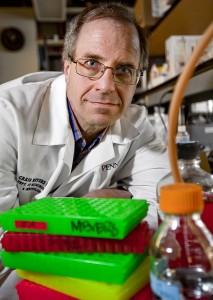 Bisphosphonates are a class of drugs now used to prevent the loss of bone mass in women with osteoporosis. Previous studies have shown that this class of drugs also appears to prevent cancer metastasis to the bones when a woman has breast cancer. A very recent study, published in the International Journal of Cancer, indicates that these drugs may also lower the risk for developing primary breast cancer.
Bisphosphonates are a class of drugs now used to prevent the loss of bone mass in women with osteoporosis. Previous studies have shown that this class of drugs also appears to prevent cancer metastasis to the bones when a woman has breast cancer. A very recent study, published in the International Journal of Cancer, indicates that these drugs may also lower the risk for developing primary breast cancer.
In the IJC study, the records of almost 42,000 women in the United Kingdom were examined and when those who had been taking oral bisphosphonates to those who had not, researchers found a reduction in the former group in both breast and colorectal cancers. An abstract for the article can be found here.












